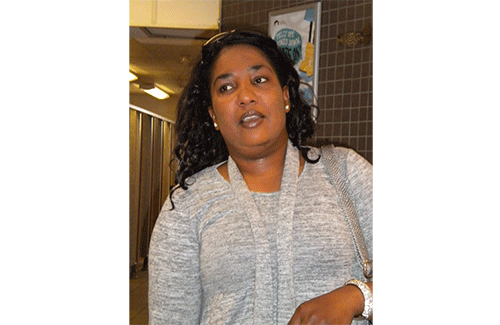Irene Kauzuu
Home-brewed beers have become a hugely hazardous and fatal drink in our society and need a permanent ban. In April 2014, a group of 25 people, including a one-year-old toddler, had to be rushed to Andara Hospital after drinking a traditional beer, known as ‘mundevere. ‘Mundevere’ is fermented beer made with mahangu, yeast, water, and sugar.
And now again, on 27 May 2023, 16 people died: a 16-year-old boy, a 13-year-old boy, a 12-year-old girl, a nine-year-old boy, three six-year-old girls, a three-year-old girl and two boys aged two. Eighteen people who live at Kayova village in the Nyanga District of the Kavango East region ate porridge made from a combination of mahangu flour and the fermented sediment from a homemade beer, known as mundevere. The porridge they ate was allegedly made from a residue of traditional-brewed beer, also known as katokere.
Now, the Disaster Risk Management Committee in the Kavango East region has put on hold the sale of homebrew (mundevere) until further notice. The Southern African Alcohol Policy Alliance’s (SAAPA) Namibia hopes that homebrew beer sales will be banned forever.
According to the latest WHO data published in 2020, alcohol deaths in Namibia reached 28 or 0.17% of total deaths. The age-adjusted death rate of 1.87 per 100 000 people ranks Namibia #64 in the world. And still, Namibia does not have a current National Alcohol Policy [NAP] to control alcohol availability, trading, advertisement or child alcohol intake.
Another home-brewed beer is tombo, which is a mixture of water, brown sugar, sorghum and yeast that is normally prepared at night for consumption in the morning.
The law allows only the brewing of tombo for personal consumption and not for sale, but in the informal settlements of Namibia’s capital, traditional beer brewing is gaining momentum, with women getting involved in the trade to feed their families. The traditional home-brewed beer, called tombo, has become a lifeline for dozens of unemployed Namibian women who sell tombo for a living.
Most of the women selling tombo say it is their means of survival. Tombo is the preferred alcoholic beverage for poor communities in Namibia. A glass of tombo (750 ml) costs N$6. This is the same volume as beer but five times cheaper.
It is with utmost sadness that Namibians and so many young lives have to be lost because of this homebrewed beer.
SAAPA Namibia hopes that this incident will be the last, and that our government, CSOs and traditional leaders will collaborate, consider banning homebrewed beers indefinitely and join SAAPA Namibia to regulate alcohol policy to control the sale and availability of alcohol as a prevention approach to alcohol-related catastrophic incidents, deaths and negative impact health-related issues. SAAPA Namibia expresses its sincere condolences to the bereaved family.
*Ms Irene Kauzuu-Muinjangue is the Country Liaison Officer for the Southern African Alcohol Policy Alliance (SAAPA)



